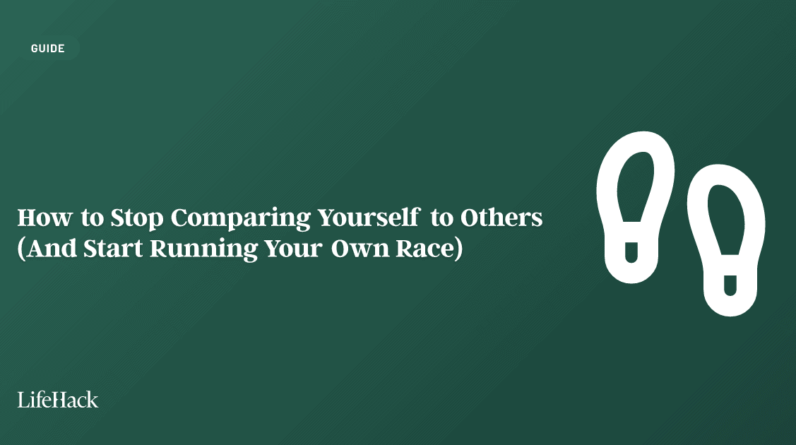
We all know someone who refuses to see the obvious – maybe a friend who won’t admit their partner is cheating, or a family member who ignores clear signs of addiction.
Sometimes, we’re the ones avoiding uncomfortable truths about ourselves.
Denial isn’t just being stubborn. It’s our mind’s way of protecting us from pain we’re not ready to handle. While this can help us cope in the short term, it often prevents us from making necessary changes in our lives.
Understanding different types of denial can help us recognize when we’re stuck in this pattern – and more importantly, how to break free from it. This article will show you what denial looks like, why it happens, and how to move toward a more honest life.
Because while the truth can hurt, it’s also what sets us free.
What is Denial?
Denial is a pattern of dismissing, discrediting or omitting facts or feelings that:
- can be clearly proven
- are confirmed by other people
- were experienced by, witnessed by, or expressed to the person in denial
Denial and Lies
Lies are heavily associated with denial.
But while some denial is a conscious choice, many people in denial don’t know they are, even when confronted with irrefutable evidence. It can be considered an unhealthy psychological state someone may need professional help to recover from.
Denial is essentially lying to oneself and others about a situation, or several. But this may not be a conscious choice. On the other hand, standard lies are a choice and come from a desire to manipulate and control other people more often than to protect oneself from the truth.
Read this next: 6 Rejection Responses and How to Make Sure Yours is Healthy
Living in Denial
Living in denial is hard for some, usually those struggling with trauma, shame and guilt.
Others find it easy as they gain practice and it becomes a pattern. Eventually, these people may even become delusional and believe the lies they tell themselves, building a life in their imagination that does not exist, making it feel real.
Some people are psychologically structured to have an easier time lying to themselves and others, as lying generally makes most people feel quite uncomfortable.
A Life of Lies
Lying becomes easier for almost anyone over long periods of time when the person doing it becomes used to it – and as the stakes rise for the truth to remain hidden.
When it is critical to someone’s life or livelihood, even the most honest person can succumb to denial.
Be aware of these diversion and manipulation tactics. These are typical of people in denial and shouldn’t come as a surprise.
- Lying to someone’s face when asked or confronted
- Dismissing the situation as ridiculous or silly
- Becoming angry and aggressive
- Diverting the conversation to another topic
- Reversing the accusation (real or false) back onto the person
- Casting doubt on the person’s memory or evidence (gaslighting)
- Questioning the person’s motives
- Making personal attacks
- Making threats
Don’t take this personally, but do take it seriously. Desperation can make people dangerous.
6 Common Types of Denial (And Why We All Do It)
Why do people choose denial? What purpose does it serve? Denial can help people:
- survive their current circumstances
- avoid dealing with past trauma
- build the life and future they want
- protect other’s feelings, relationships, assets, safety and freedom
Let’s be honest – we all live in denial about something. It’s not always a bad thing, but understanding why we do it can help us figure out when it’s protecting us versus when it’s holding us back.
1. Our Brain’s Defense System
Sometimes our mind just won’t let us see the truth because it’s too painful. Like when a loving parent can’t accept that their child is bullying other kids at school – it just doesn’t match up with who they think their kid is.
Or when someone who was hurt by a trusted family member keeps thinking “they didn’t mean it” or “it wasn’t that bad” because accepting the reality would shatter their whole world.
2. When We Literally Can’t Remember
This one’s straightforward – sometimes people genuinely forget things.
Maybe your elderly relative doesn’t remember saying hurtful things because of dementia. Or someone who was on heavy medication during a difficult time has gaps in their memory. It’s not intentional; their brain just isn’t holding onto those memories anymore.
3. Protecting the Story
This is when we know the truth but choose to lie to keep things from falling apart.
Think about the person who knows their spouse is having an affair but tells everyone their marriage is “perfect” because they’re not ready to deal with the fallout. Or parents who cover for their teenager’s drinking problem because they don’t want neighbors to judge their family.
4. When Trauma Feels Too Big to Face
Surviving something terrible often comes with a whole mess of consequences that feel impossible to handle. Someone might deny their childhood abuse because dealing with it means:
- Feeling ashamed and guilty (even though it wasn’t their fault)
- Having family members question or blame them
- Going through years of therapy and healing work
- Dealing with anxiety, depression, or other lasting effects
- Potentially going through legal battles with no guarantee of justice
- Watching the person who hurt them face no real consequences
It’s easier to pretend it didn’t happen than to open that can of worms.
5. Just Getting Through the Day
Sometimes people know something terrible happened, but they literally can’t afford to deal with it right now. Like the single mom who knows her ex was abusive but can’t process it because she’s got bills to pay and kids to feed.
Or the college student who experienced assault but pushes it down because they need to finish their degree first. They’re not saying it didn’t happen – they’re just putting it in a box until they’re in a safer place to deal with it.
6. “Don’t Tell Me”
This is when we actively choose ignorance. We tell people we don’t want to know certain things because knowing would force us to make difficult decisions.
Like telling your friend “I don’t want to know if you’re cheating on your partner” because then you’d have to decide whether to get involved. Or a CEO saying “Don’t tell me how the sausage gets made” because knowing about questionable business practices would mean they’d have to do something about it.
The thing about denial is that it often serves a purpose – at least temporarily. But recognizing which type we’re dealing with (in ourselves or others) can help us figure out when it’s time to gently push past it.
Overcoming Denial
The truth can hurt, but it can also set you free.
There is no need to be angry at or afraid of the truth. Knowledge is power, but with power comes responsibility. Understand where denial comes from and how it happens, then do your best to identify and resolve it.
It may not feel like honesty is always in your best interest, but no one can make good decisions with bad information. Make the best choices you can, and help others do the same.
Editor’s note: This article was originally published Sep 10, 2021 and has been updated to improve reader experience.
Photo by Anete Lusina







